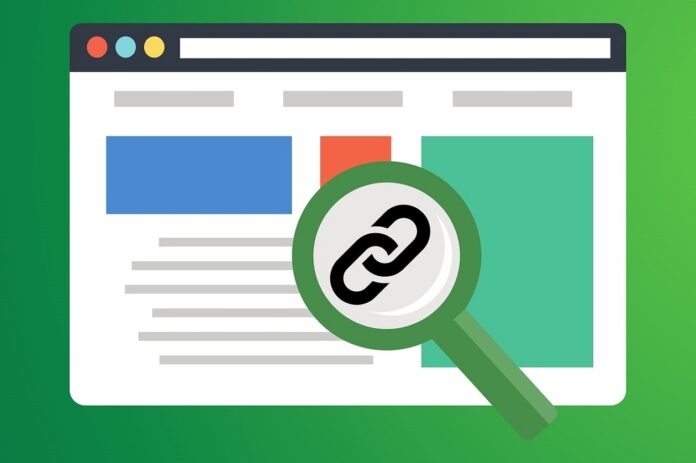To attract visitors without paying for ads, ranking well on search engines is essential. A strong position in Google brings a steady flow of visitors, more chances to turn them into customers, and helps build a brand people trust. Backlinks are one of the best ways to climb up the ranking ladder. Done right, they can give your online visibility a serious boost.
Plenty of site owners decide to buy quality backlinks instead of waiting months for organic links to trickle in. If you do not know exactly how to do this, you may end up doing more harm than good. Search engines are not kind to sites caught using shady link‑building tactics.
Why Quality Matters When Buying Backlinks
Not all backlinks are worth having. Some do little for SEO. In some cases, links can work against you. Search engines can easily spot linking activity that appears artificial. That means a low‑quality link could drag down your rankings rather than lift them.
So, if you are planning to buy quality backlinks, focus on getting them from trustworthy, clean, relevant sites. These links have weight. They signal to Google that your site belongs in that space. Even better, they can send you visitors who are already interested in what you offer. Poor‑quality links? They do the opposite — hurting both your rankings and your brand’s credibility.
Choosing the Right Source to Buy Backlinks
Finding a trustworthy seller is half the battle. The good ones will look at your niche, understand your goals, and work out a link‑building plan that fits. They will be upfront about where your links will appear and how they will be placed. They won’t just dump them in random blogs or directories and call it a day.
If you want a shortcut to a reliable source, look into services like buy good quality backlinks. They focus on earning placements in relevant, high‑authority sites — places that actually make a difference to your search visibility. This approach might take longer than automated link drops, but it’s far more sustainable.
Assessing Backlink Quality Before You Spend a Penny
Before you even think about buying a link, slow down and look at what’s on offer. Not every backlink is worth the price tag. Some barely move the needle. Some can actually hurt you. Start by checking where the link will come from. Does the site have a decent reputation? Is it the sort of place your audience might actually visit?
Yes, you can glance at domain authority scores, but that’s not the full story. A high score doesn’t matter much if the traffic is irrelevant. Relevance is the real deal‑breaker here. A link from a website in your niche is worth far more than a random placement on a site that’s got nothing to do with your industry. And don’t ignore where the link sits. Buried in a footer? Tossed into a sidebar? Less value. Worked naturally into a good piece of content? Now you’re talking.
Common Backlink Buying Blunders
Many website owners hunt for the cheapest bulk deals in backlinks, stack up hundreds from link farms or generic directories, and hope for the best. You might gain something from it for a few weeks. Then search engines catch on, and those “gains” vanish — sometimes with a penalty attached.
Another trap? Over‑optimised anchor text. Using the same keyword‑heavy phrase every single time screams manipulation. And buying links from sites that will publish anything for a price is a shortcut to a dicey neighbourhood online. Once your site is associated with low‑quality networks, fixing the damage is a headache you don’t want.
Fitting Purchased Links Into the Bigger Picture
Buying backlinks can be part of your SEO playbook — but it’s not the whole game. Solid rankings need good content, a technically sound site, and a reason for people to stay once they land there. The best approach blends buy quality backlinks with content that earns links naturally. That combination feels believable to both users and search engines.
Connections matter too. Building real relationships with other site owners in your space often leads to natural, high‑value links. Guest posts, collaborations, co‑created guides — they all help create a backlink profile that’s more than just “paid for.”
Tracking What You’ve Paid For
Once those backlinks go live, don’t just forget about them. Keep tabs on what they’re doing. Are they bringing referral traffic? Helping keywords move up? Still live six months later? Links can quietly disappear, get moved to less valuable pages, or even be deleted.
By watching the numbers and the placements, you’ll quickly spot which investments are worth repeating — and which ones you shouldn’t bother with again.
Staying Within the Rules
Search engines aren’t shy about saying what they don’t like. Buying backlinks purely to gain rankings is risky. The safest way forward is to get links placed editorially on real, relevant sites that publish proper content.
There’s no shortage of advice out there on spotting quality backlinks and staying out of trouble. The best strategies work with search engine guidelines, not against them.
Final Word
Buying links isn’t a magic bullet. Done well, it’s a boost. Done badly, it’s a mess to clean up. Focus on quality, be picky about where your links come from, and think about how they fit into your wider SEO plan. That way, you’re not just buying backlinks — you’re building a stronger foundation for long‑term visibility.






